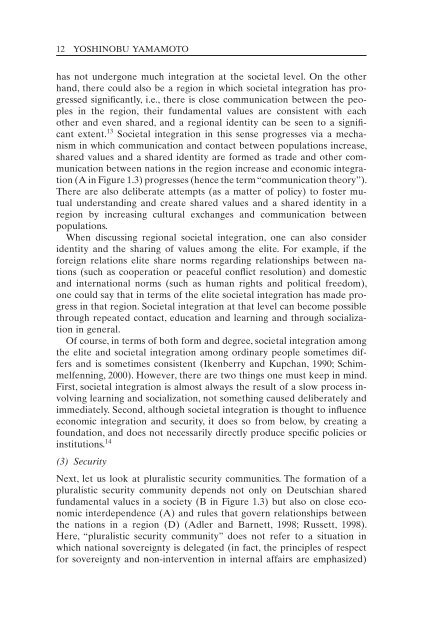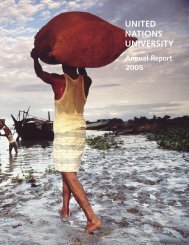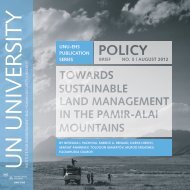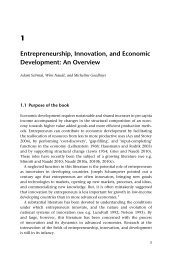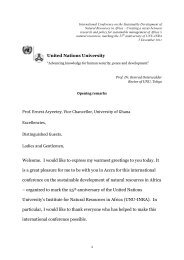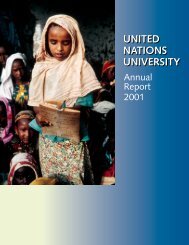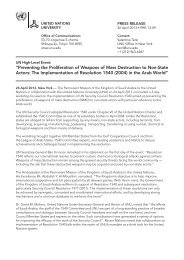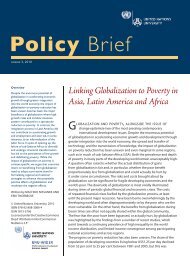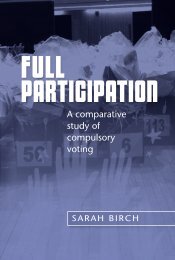Sample Chapter - United Nations University
Sample Chapter - United Nations University
Sample Chapter - United Nations University
Create successful ePaper yourself
Turn your PDF publications into a flip-book with our unique Google optimized e-Paper software.
12 Yoshinobu Yamamoto<br />
has not undergone much integration at the societal level. On the other<br />
hand, there could also be a region in which societal integration has progressed<br />
significantly, i.e., there is close communication between the peoples<br />
in the region, their fundamental values are consistent with each<br />
other and even shared, and a regional identity can be seen to a significant<br />
extent. 13 Societal integration in this sense progresses via a mechanism<br />
in which communication and contact between populations increase,<br />
shared values and a shared identity are formed as trade and other communication<br />
between nations in the region increase and economic integration<br />
(A in Figure 1.3) progresses (hence the term “communication theory”).<br />
There are also deliberate attempts (as a matter of policy) to foster mutual<br />
understanding and create shared values and a shared identity in a<br />
region by increasing cultural exchanges and communication between<br />
populations.<br />
When discussing regional societal integration, one can also consider<br />
identity and the sharing of values among the elite. For example, if the<br />
foreign relations elite share norms regarding relationships between nations<br />
(such as cooperation or peaceful conflict resolution) and domestic<br />
and international norms (such as human rights and political freedom),<br />
one could say that in terms of the elite societal integration has made progress<br />
in that region. Societal integration at that level can become possible<br />
through repeated contact, education and learning and through socialization<br />
in general.<br />
Of course, in terms of both form and degree, societal integration among<br />
the elite and societal integration among ordinary people sometimes differs<br />
and is sometimes consistent (Ikenberry and Kupchan, 1990; Schimmelfenning,<br />
2000). However, there are two things one must keep in mind.<br />
First, societal integration is almost always the result of a slow process involving<br />
learning and socialization, not something caused deliberately and<br />
immediately. Second, although societal integration is thought to influence<br />
economic integration and security, it does so from below, by creating a<br />
foundation, and does not necessarily directly produce specific policies or<br />
institutions. 14<br />
(3) Security<br />
Next, let us look at pluralistic security communities. The formation of a<br />
pluralistic security community depends not only on Deutschian shared<br />
fundamental values in a society (B in Figure 1.3) but also on close economic<br />
interdependence (A) and rules that govern relationships between<br />
the nations in a region (D) (Adler and Barnett, 1998; Russett, 1998).<br />
Here, “pluralistic security community” does not refer to a situation in<br />
which national sovereignty is delegated (in fact, the principles of respect<br />
for sovereignty and non-intervention in internal affairs are emphasized)


